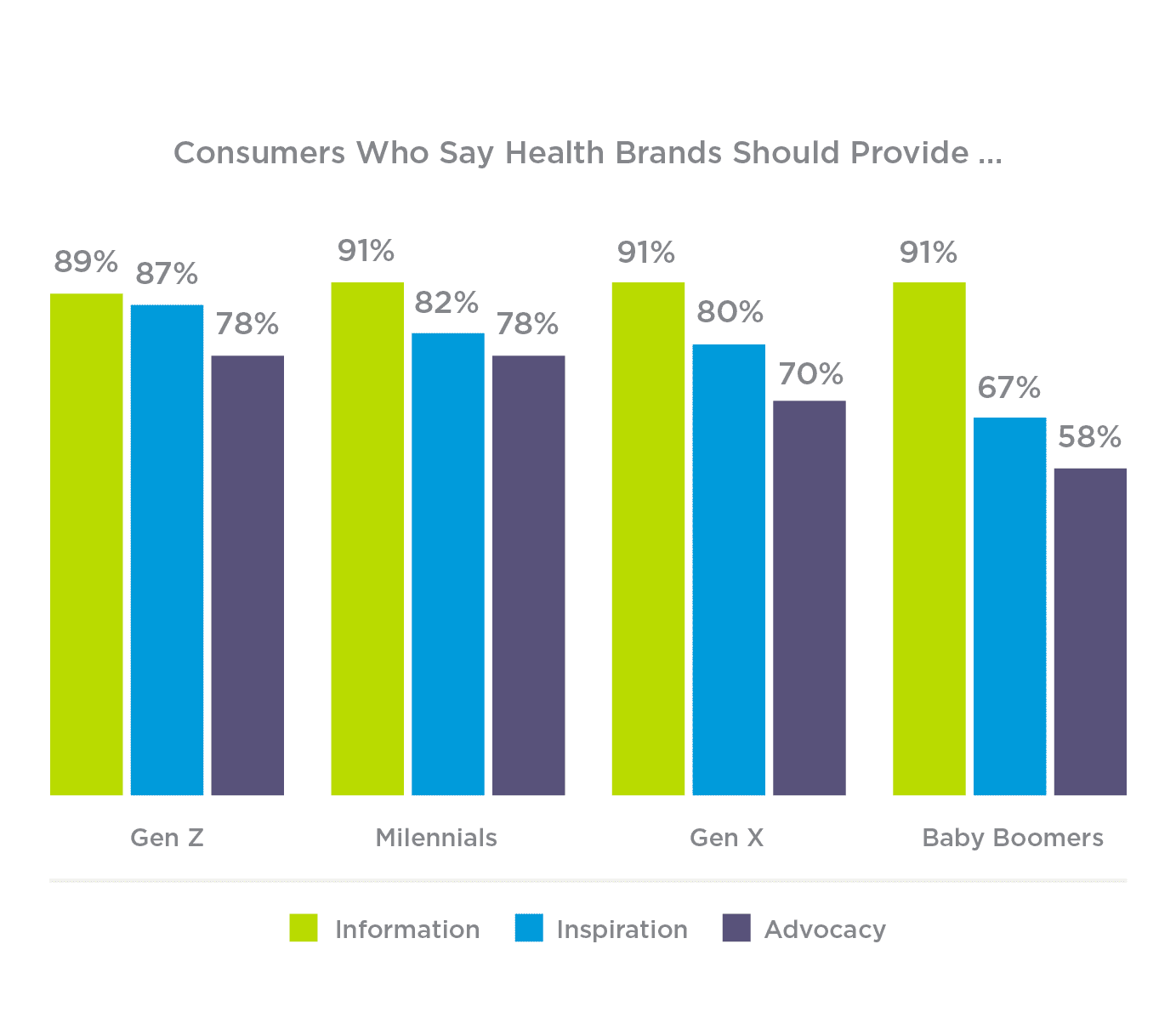Are mentor branding strategies an effective way for health brands to establish stronger connections with consumers of all generations? A study by Meyocks investigated the attitudes of different generations towards the mentor branding elements of advocacy, inspiration, and value-added information.
More than 90% of all respondents say health care brands should provide value-added information. With other mentor branding elements, there were distinctions among generations.
What Is Important to Gen Z and Millennials in a Health Brand?
The majority of Gen Z and Millennials believe that health brands should take a stand on issues important to them and their customers, with 70% of Gen Z and 60% of Millennials agreeing.
Gen Z and Millennials also place more emphasis on advocacy, with 43% of Gen Z and 42% of Millennials indicating that they make purchase decisions based on a health brand’s advocacy.
What Is Important to Gen X and Baby Boomers in a Health Brand?
Gen X and Baby Boomers also value mentor branding elements such as inspiring customers, advocating for customers, and supporting their interests.
However, Gen X and Baby Boomers do not place as much emphasis on health brands taking a stand on issues important to them, with just 51% of Gen X and 41% of Baby Boomers agreeing.
Less than a third (31%) of Gen X and 21% of Baby Boomers said they purchase health brands based on advocacy.
The Benefits of Mentor Branding
While there are differences in how generations view elements of mentor branding for health brands, all consumers value at least some aspect.
Explore more about this potential differentiation opportunity for your health brand strategy.

